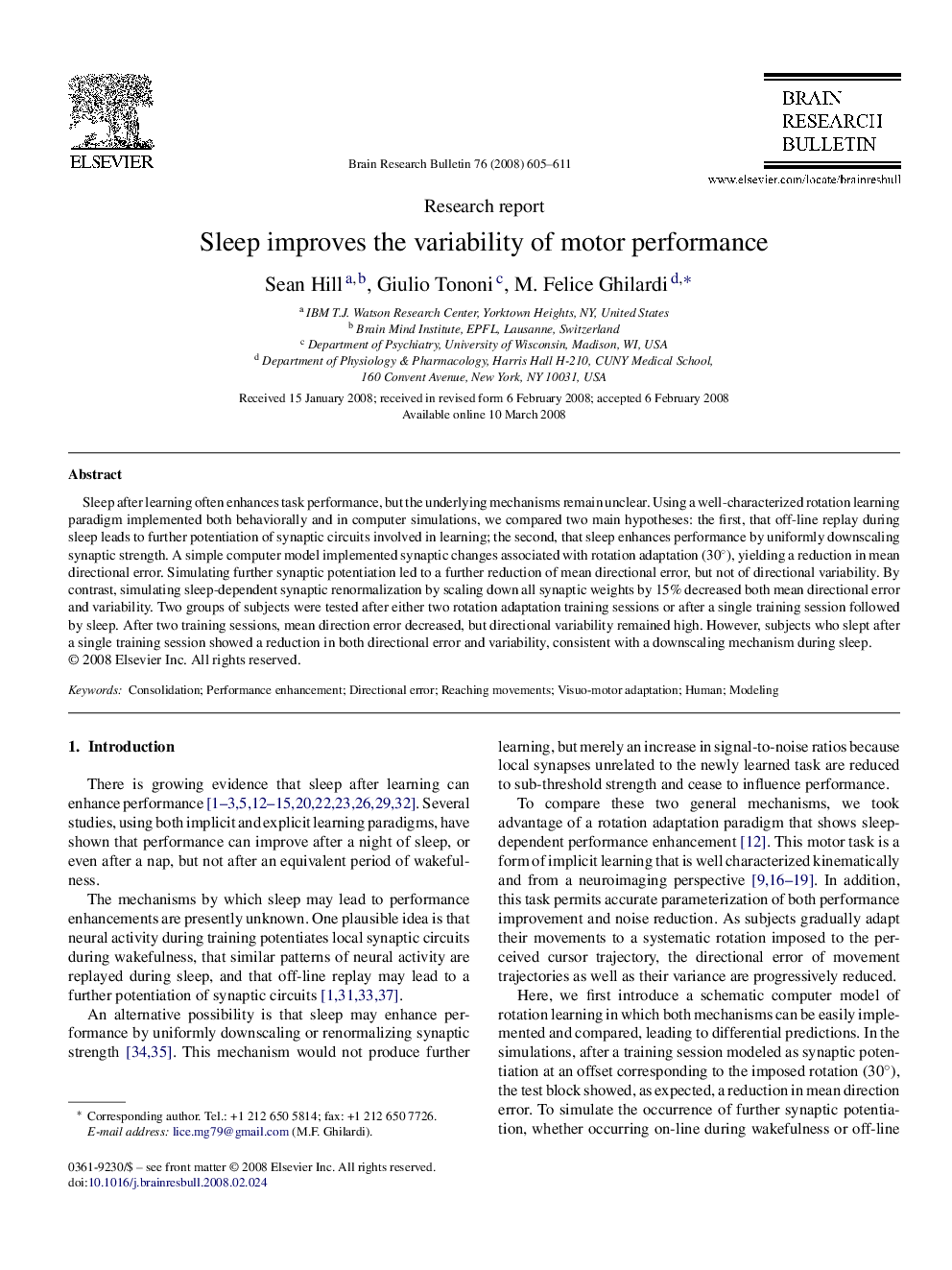| Article ID | Journal | Published Year | Pages | File Type |
|---|---|---|---|---|
| 4319639 | Brain Research Bulletin | 2008 | 7 Pages |
Sleep after learning often enhances task performance, but the underlying mechanisms remain unclear. Using a well-characterized rotation learning paradigm implemented both behaviorally and in computer simulations, we compared two main hypotheses: the first, that off-line replay during sleep leads to further potentiation of synaptic circuits involved in learning; the second, that sleep enhances performance by uniformly downscaling synaptic strength. A simple computer model implemented synaptic changes associated with rotation adaptation (30°), yielding a reduction in mean directional error. Simulating further synaptic potentiation led to a further reduction of mean directional error, but not of directional variability. By contrast, simulating sleep-dependent synaptic renormalization by scaling down all synaptic weights by 15% decreased both mean directional error and variability. Two groups of subjects were tested after either two rotation adaptation training sessions or after a single training session followed by sleep. After two training sessions, mean direction error decreased, but directional variability remained high. However, subjects who slept after a single training session showed a reduction in both directional error and variability, consistent with a downscaling mechanism during sleep.
